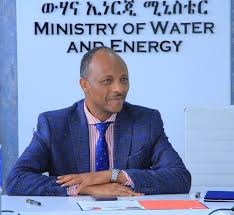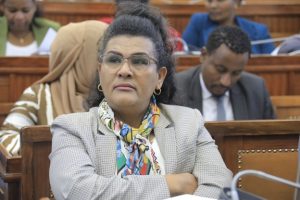
ADDIS ABABA –The Ministry of Water and Energy (MoWE) has announced Ethiopia’s commitment to ensuring access to drinking water for all citizens by 2030.
MoWE Minister Eng. HabtamuItefa (PhD) addressed the House of People’s Representatives regarding several issues, including the shortage of drinking water in major cities, pollution of water sources, including the spread of invasive weeds, well drilling, delays and inefficiencies in water expansion projects, the need for new initiatives, and the ongoing efforts to achieve full national coverage of potable water.
He explained that the Ministry has undertaken various efforts to increase access to clean water, which has now reached 76 percent nationwide. He emphasized that the government is working to achieve 100 percent coverage by 2030.
Habtamu stressed that strong cooperation among all stakeholders is essential to meet this goal. He urged regional governments to contribute alongside the federal government’s budget to ensure success.
He added that the Ministry is working to integrate water basin initiatives while gathering vital data on both ground and surface water to improve the availability of clean water. “We have made a commendable effort in collecting and organizing information on the country’s water resources,” he said.
Responding to concerns, the Minister noted that despite existing shortages, 17 million people have gained access to drinking water in the past four years, increasing overall coverage by 25 percent. He also mentioned that the Ministry plans to supply water to cities facing severe shortages and promote rainwater harvesting in rural communities.
Meanwhile, the House of People’s Representatives has referred a draft proclamation on Payment for Ecosystem Services and Multi-Agency Agricultural Extension Services and Management to the relevant standing committee.
Minister in Charge of the Government, Tesfaye Beljige, stated that the proposed law aims to strengthen the social, economic, and environmental benefits of ecosystems in support of national development. He underscored the urgent need for a legal framework to ensure the sustainable use of ecosystems, which are under increasing pressure from unsustainable practices.
The draft proclamation on Multi-Stakeholder Agricultural Extension Services and Management was also presented. According to Tesfaye, it seeks to establish a standardized, efficient, and accountable legal structure for managing agricultural extension services.
BY ESSEYE MENGISTE
THE ETHIOPIAN HERALD WEDNESDAY 28 MAY 2025




